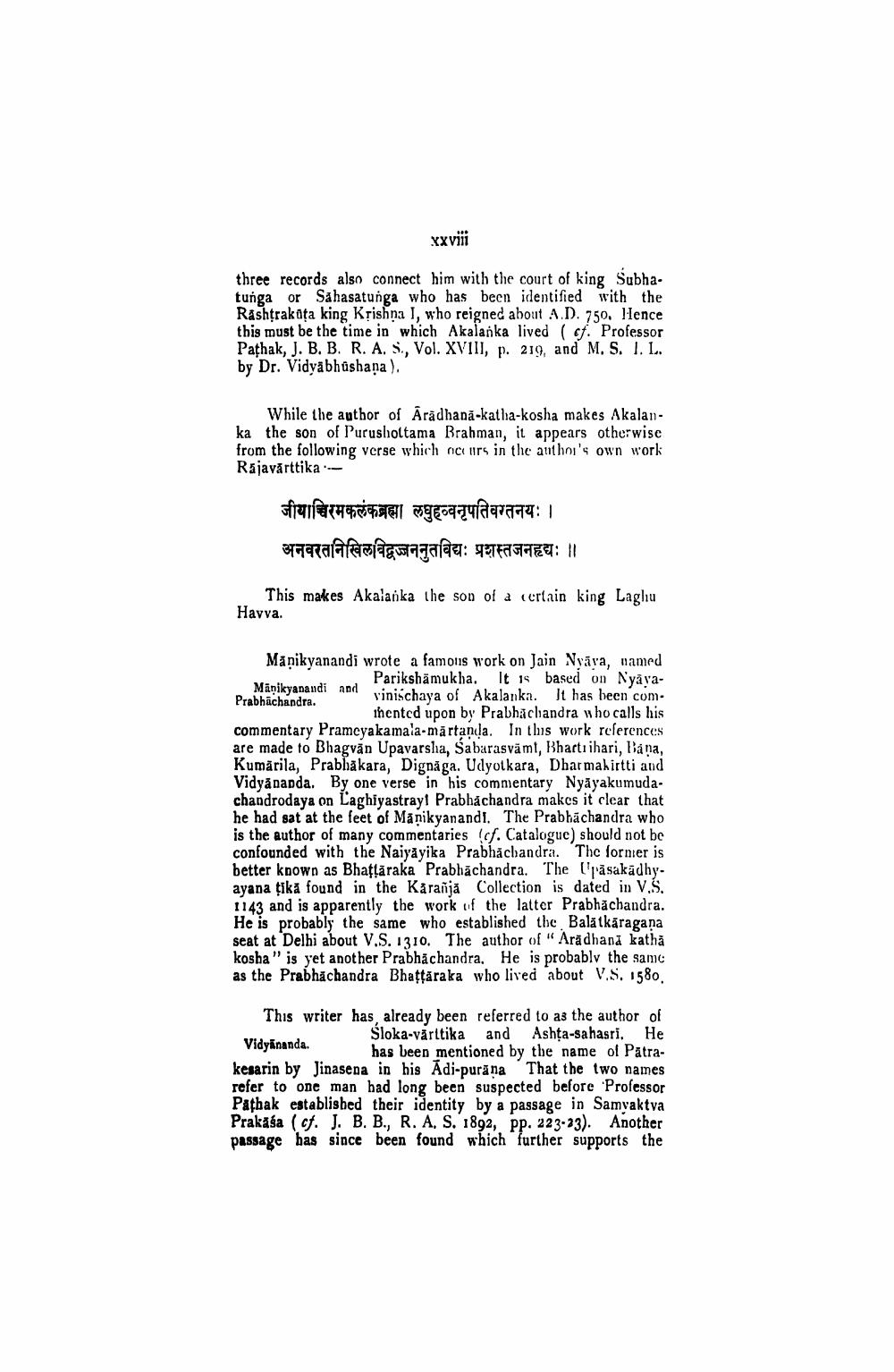________________
xxviii
three records also connect him with the court of king Subhatunga or Sahasatunga who has been identified with the Rashtrakuta king Krishna I, who reigned about A.D. 750. Hence this must be the time in which Akalanka lived (cf. Professor Pathak, J. B. B. R. A. S., Vol. XVIII, p. 219, and M. S. 1. L. by Dr. Vidyabhushana).
While the author of Aradhana-katha-kosha makes Akalanka the son of Purushottama Brahman, it appears otherwise from the following verse which occurs in the author's own work Rajavarttika
चिरमकलंकब्रह्मा लघुहव्वनृपतिवरतनयः । अनवरतनिखिल विद्वज्जननुतविद्यः प्रशस्तजनहृद्यः ॥
This makes Akalańka the son of a certain king Laghu Havva.
Manikyanandi wrote a famous work on Jain Nyaya, named Parikshämukha. It is based on Nyayavinischaya of Akalanka. It has been comthented upon by Prabhachandra who calls his commentary Prameya kamala-martanda. In this work references are made to Bhagvan Upavarsha, Sabarasvämt, Bharti ihari, Bana, Kumārila, Prabhakara, Dignaga. Udyotkara, Dharmakirtti and Vidyananda. By one verse in his commentary Nyayakumudachandrodaya on Laghiyastray! Prabhachandra makes it clear that he had sat at the feet of Manikyanandi. The Prabhachandra who is the author of many commentaries (cf. Catalogue) should not be confounded with the Naiyayika Prabhachandra. The former is better known as Bhattaraka Prabhachandra. The Upasakādhyayana tika found in the Karañja Collection is dated in V.S. 1143 and is apparently the work of the latter Prabhachandra. He is probably the same who established the Balätkäragana seat at Delhi about V.S. 1310. The author of "Aradhana katha kosha" is yet another Prabhachandra. He is probably the same as the Prabhachandra Bhaṭṭaraka who lived about V.S. 1580.
Manikyanandi and Prabhachandra.
This writer has, already been referred to as the author of Śloka-värttika and Ashta-sahasri. He
Vidyananda.
has been mentioned by the name of Patrakesarin by Jinasena in his Adi-purana That the two names refer to one man had long been suspected before Professor Pathak established their identity by a passage in Samyaktva Prakasa (cf. J. B. B., R. A. S. 1892, pp. 223-23). Another passage has since been found which further supports the




